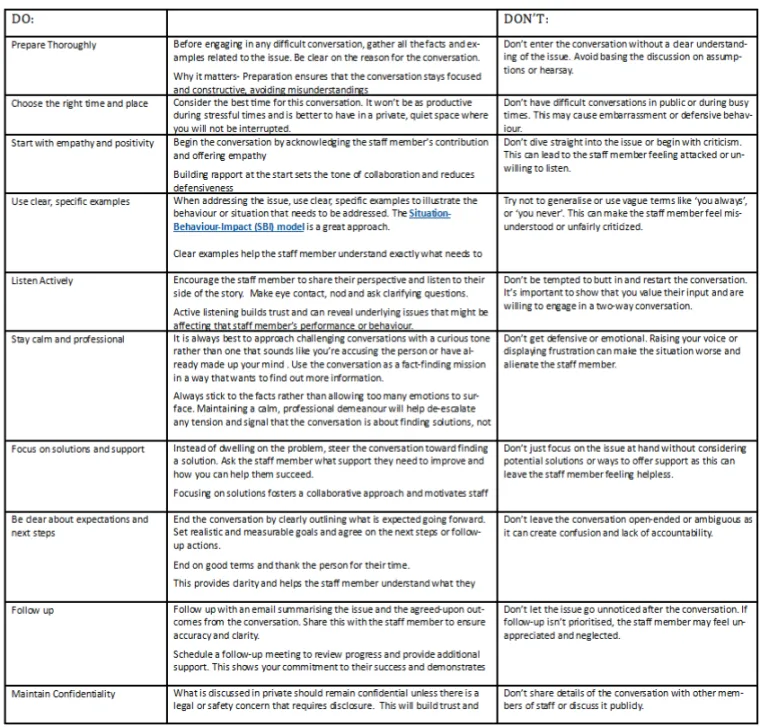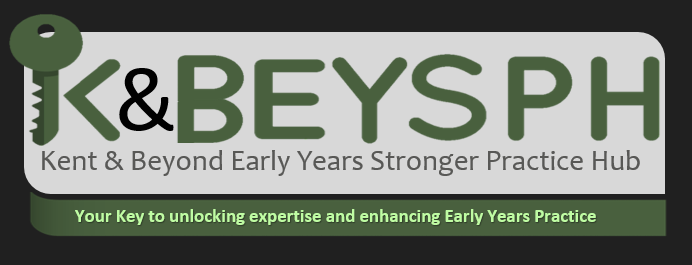Introduction:
Educational leadership often comes with a variety of complex responsibilities, and one of the most challenging aspects can be addressing interpersonal and professional issues within a team. These conversations, while often uncomfortable, are essential for maintaining a healthy work environment and promoting progress. Rather than viewing them as “difficult or challenging,” it can be helpful to reframe them as “necessary conversations” — essential interactions that uphold standards, support growth, and foster trust.
This guide outlines key strategies and resources to help leaders approach and plan for these conversations effectively.
Why Do Challenging Conversations Matter?
Understanding the why behind a conversation is critical. Consider the impact of avoiding necessary dialogue: what are the consequences for staff morale, student outcomes, or school improvement? Unaddressed issues — such as lack of compliance with school policies, persistent negativity, or ineffective teaching practices — can create invisible barriers to progress.
As highlighted in Sonia Gill’s “Heads Up”, these challenges, when not addressed, can significantly hinder development and performance within schools. Identifying and addressing them early is crucial for long-term success.
Building Stronger Relationships
Well-managed conversations can actually strengthen relationships. When approached with transparency and care, they foster a culture of trust, mutual respect, and open communication.
The Radical Candor model by Kim Scott emphasizes the importance of caring personally while challenging directly — a valuable framework for school leaders aiming to build high-functioning teams.
Resolving Conflicts
Timely conversations help prevent issues from escalating. For example, when a team member consistently arrives late or disengages during meetings, silence can be interpreted as tolerance. Addressing these patterns early reinforces shared expectations and maintains a positive culture.
Promoting Growth
Constructive feedback is vital in educational settings. Challenging conversations provide an opportunity for reflection, improvement, and professional development — both for the leader and those they support. When handled with empathy and clarity, these interactions contribute to a culture of continuous learning.
Common Types of Challenging Conversations in Schools and other Educational Settings:
Educational leaders frequently face a range of situations that require thoughtful communication, such as:
- Addressing staff performance or professionalism
- Discussing behaviour, boundaries, or safeguarding concerns with parents
- Supporting students with learning or behaviour needs
- Navigating differing priorities or disagreements among colleagues
Top Tips for Managing Challenging Conversations
Several models can help structure and guide these discussions. One notable resource is Susan Scott’s “Fierce Conversations,” which offers practical tools for approaching conversations with clarity and intention.
Key tips include:
- Prepare thoroughly: know the purpose and desired outcome of the conversation
- Stay calm and focused: manage emotions and avoid blame
- Use clear, respectful language
- Listen actively and validate the other person’s perspective
- Follow up with clear next steps and support where needed
With thoughtful preparation and the right approach, challenging conversations can become powerful tools for leadership, growth, and school improvement.
Below is a summary of some things to consider when planning those challenging conversations:

Holding challenging conversations is a vital skill in creating a supportive and productive work environment. By following these Dos and Don’ts, you can ensure that these discussions lead to more constructive outcomes, foster professional growth and strengthen relationships. Remember your approach will not only impact the person involved but also set the tone for communication across the entire setting.
By practising empathy, maintaining professionalism, and focusing on solutions, you can turn challenging conversations into opportunities for development and positive change.
Author: Lisa Davis, former headteacher, School Improvement Consultant and Founder of the Growth Foundation Coaching, Training and Consultancy company.
